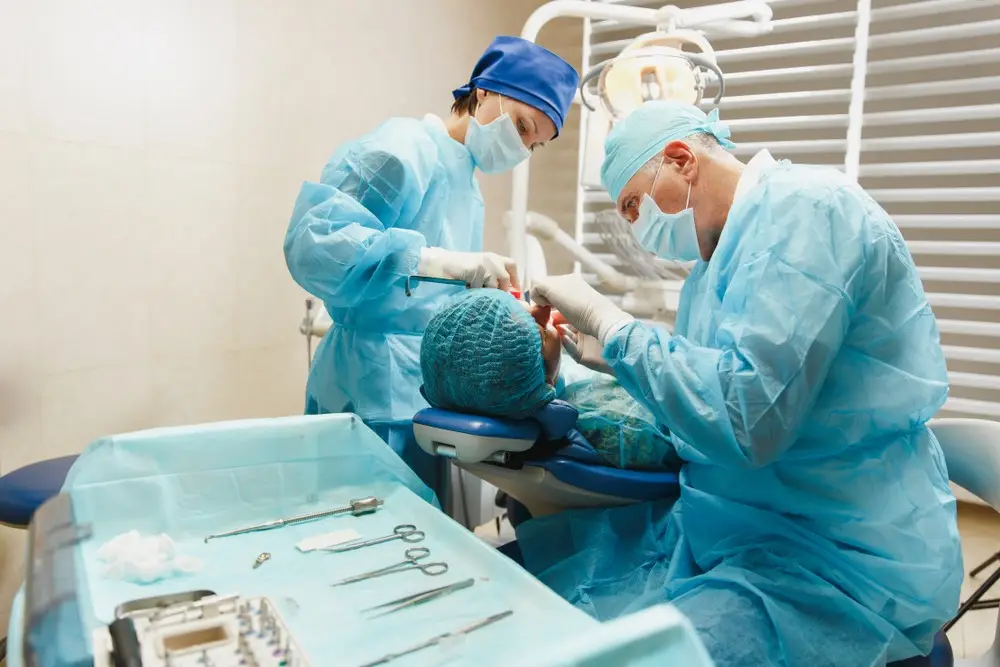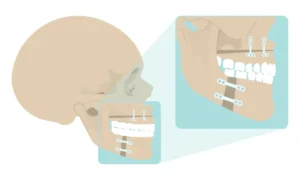Costs associated with surgery of any kind can be daunting. For orthognathic surgery, this is no different. However, you can’t put a price on your improved oral – and overall – health thanks to your new smile. The mouth serves as the first line of defense against bacteria and your new healthy jaw will be a formidable foe for bacteria.
Insurance can help cover costs and make jaw surgery a realistic option for individuals who need the surgical procedure to better their lives. This guide will explain how much jaw surgery can cost and what insurance can do to save you money.
Insurance plays a crucial role in managing these expenses. Understanding “jaw surgery insurance coverage” is key.
Insurance typically covers medically necessary surgeries, such as those for misaligned jaws or breathing issues. To maximize savings, verify your coverage details before proceeding with surgery. This ensures an informed financial decision.
Insurance companies often cover a portion of the cost for medically necessary surgeries like those related to misaligned jaws or breathing issues. To make a well-informed financial decision and maximize savings, it’s crucial to check your coverage specifics before proceeding with surgery. This includes verifying if your flexible spending account (FSA) can be used and considering options like lingual braces.
Does Jaw Surgery Cost?
Without insurance, jaw surgery can run you between $15,000 and $50,000. The final cost will depend on various factors, including:
- The surgeon’s experience level
- Surgeon’s fees
- Hospital fees
- Anesthesia fees
- Prescriptions for medication
- The severity of your case
- Number of jaws that need to be corrected (just one or both upper and lower)
- And more
All these costs may seem daunting but remember – many insurances will cover at least a portion of costs associated with orthognathic surgery if it is a functional procedure. This means that if you are undergoing surgery to correct an issue that negatively impacts your life, your insurance will cover at least a portion of the costs associated with the procedure.
Please make sure to check the details of your insurance plan before undergoing orthognathic surgery. Be sure there are no exclusions in your plan that would make jaw surgery an uncovered expense. Your dentist or orthodontist can help you find a surgeon and hospital that are in your network.
An HSA or FSA To Pay for My Jaw Surgery?

Certainly, you can use your health savings or flexible savings accounts (HSA or FSA) for jaw surgery expenses. If the procedure is deemed functional rather than cosmetic, you may be eligible for reimbursement, making it a viable option for using HSA or FSA for jaw surgery. In the case of Invisalign treatment, these accounts can also help with related costs.
Pay for Jaw Surgery Without Insurance?

Many providers offer flexible monthly payment plans for dental treatments and corrective jaw surgery. Your dentist or orthodontist can assist you in finding a surgeon who allows for these payment options. If you need to pay out of pocket, consider using a health savings account (HSA) for tax-free payments.
Jaw Surgery for Free?

It is unlikely you can receive jaw surgery without paying a cent, but many insurances will cover at least a portion of the costs.
Medicaid Cover Jaw Surgery?

Medicaid coverage for orthognathic surgery if it is medically necessary, but eligibility varies by state. To confirm coverage in your state, contact your state’s Medicaid office.
Medicaid coverage for orthognathic surgery, often done alongside traditional metal braces, varies by state. To check eligibility, contact your state’s Medicaid office. Oral and maxillofacial surgery, performed by oral surgeons, may be covered.
Private Dental Insurances Cover Jaw Surgery?

The following insurances cover jaw surgery in some capacity.
- Aetna – medically necessary cases only
- United Healthcare – medically necessary cases only
- Cigna – medically necessary cases only; specifically mentions that cosmetic cases are excluded
- Blue Cross/Blue Shield – depends on the state, but most states cover medically necessary procedures
Although the specifics can vary by state. In contrast, several insurance providers have specific policies regarding orthognathic surgery:
- MetLife – excludes orthognathic surgery from their coverage.
- USAA also does not cover – excludes orthognathic surgery
- Aflac and Humana, on the other hand, do not clearly state whether orthognathic surgery is covered in their insurance plans.
- Delta Dental – does not explicitly mention orthognathic surgery coverage
Orthognathic Surgery To Correct My Open Bite?

Orthognathic surgery effectively corrects open bites. It’s commonly done alongside orthodontic treatment for optimal results. This procedure enhances dental care and complements ceramic braces or ligating braces.
Orthodontics plays a crucial role in health care. It focuses on correcting bite alignment. This enhances oral health significantly.
Each treatment is tailored to improve patients’ dental structure. This ensures better overall oral functionality and health

